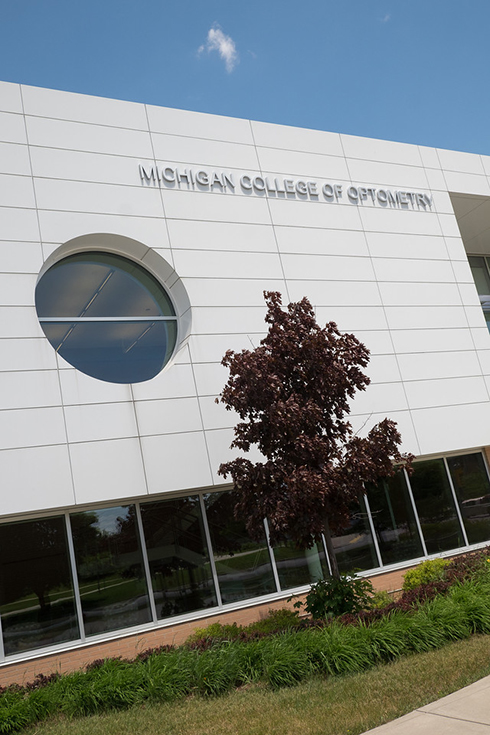 Michigan College of Optometry at Ferris State University
Michigan College of Optometry at Ferris State UniversityThe Michigan College of Optometry at Ferris State University will join more than a dozen locations across the country to participate in a clinical trial sponsored by Eyenovia, Inc. to evaluate the safety and efficacy of an investigational drug, MicroPine, to help slow myopia progression in children.
MicroPine is an atropine eye solution formulated for administration as a gentle mist using the company’s patented microdose dispenser. The FDA has not yet approved it for slowing myopia progression, so it is still considered investigational. Pediatric progressive myopia is nearsightedness in children that worsens year after year. This progression may result in severe (or high) myopia, which can be associated with potentially serious side effects, including loss of vision. In 2016, there were an estimated 30 million children with myopia in the United States alone, of which approximately five million would be considered highly myopic.
Associate Professor of Optometry Dr. Chad Rosen is the director of the MCO Vision Research Institute (VRI). He stated that this is the first collaborative research project for the MCO as Eyenovia, Inc., an ophthalmic biopharmaceutical company based in New York City, is including academic centers as part of the investigational team.
Prospective participants will be assessed by a research optometrist and, if suitable, invited to attend up to 11 visits over four years at the VRI. Children enrolled in the study will be randomly assigned to use one of two different low doses of MicroPine or a placebo for three years. During the fourth and final year of the study, children will be re-randomized. All children will receive MicroPine for at least one of the four years of the study, and some children may receive MicroPine all four years.
Participants will receive the study medication at no cost. Comprehensive eye care, a stipend towards glasses and a reimbursement for time and travel expenses will be included.
Rosen said that the VRI and Michigan College of Optometry faculty are thankful that Ferris’ Office of Research and Sponsored Programs and the university’s Institutional Review Board approved their participation in this collaborative effort, the Phase 3 Clinical Trial conducted under an Investigational New Drug application filed with the FDA.
“The VRI’s involvement in this research should be a great learning opportunity, both for our faculty in the Contact Lens and Pediatric programs, and those students who make clinical observations or serve other roles in the project,” Rosen said. “Phase 3 study investigational sites typically include institutions like The Ohio State University or the University of California-Berkeley. So, our involvement is a unique honor. We have every confidence that the findings will be beneficial to ophthalmic medications and treatment.”

